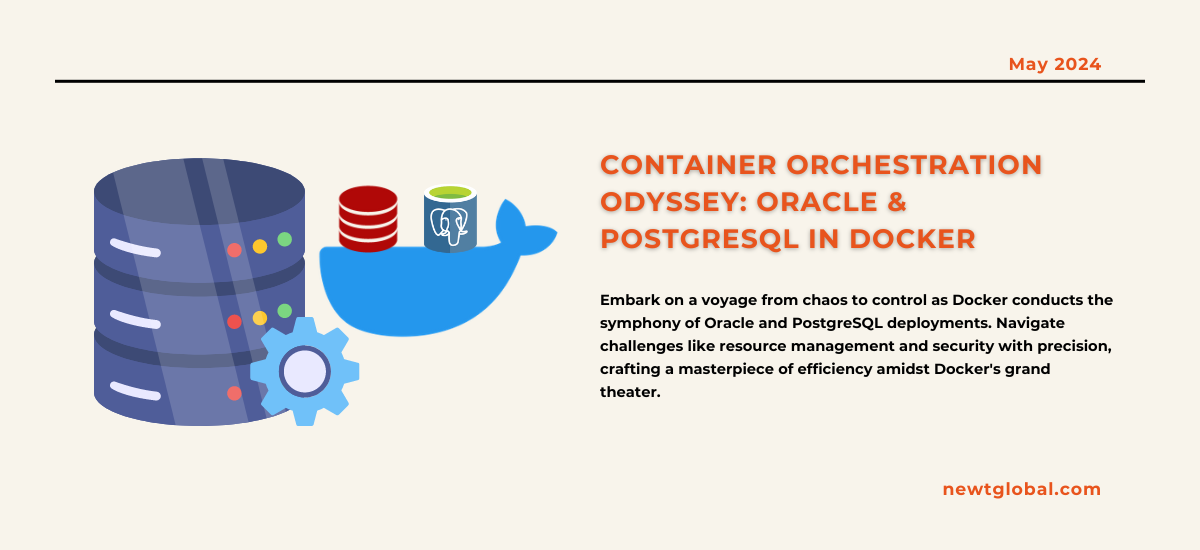
In today’s world of software, containerization is like the star performer in an orchestra, making deployments and scaling smooth and harmonious. Docker, especially, stands out for its ability to package applications and their needs neatly into containers, which are like little self-contained units. But when it comes to handling complex databases like Oracle and PostgreSQL within Docker, things can get a bit chaotic.
Containerized Chaos: The Challenges
-
- Performance Issues: With Docker, sometimes databases might not run as fast because they get lost in the complexity of Docker’s layers. To fix this, we need to fine-tune everything to make it run smoother.
-
- Saving Data: Containers are temporary, but data needs to stay safe and permanent. To solve this, we use Docker’s storage options and other ways to keep data secure and available.
-
- Using Resources Wisely: Docker might not give databases enough power (like CPU or memory) by default, leading to problems. We have to be smart about giving resources to make sure databases have what they need.
-
- Connecting Everything: Setting up connections within Docker can be complicated, especially when linking containers to outside services. We need to plan carefully to keep communications secure.
-
- Keeping Data Safe: Security is super important for databases. We use encryption and careful access control to protect data from unwanted access.
Containerized Control: Best Practices
-
- Better Docker Images: We make Docker images that are optimized for speed and efficiency, refining them through tests to get the best performance.
-
- Reliable Data Storage: We use Docker’s storage options and other methods to make sure data is always safe and sound, even when containers are restarted or removed.
-
- Smart Resource Use: We carefully decide how much power (CPU, memory) to give to each database, keeping an eye on things to make sure everything runs well.
-
- Smart Network Setup: We plan Docker networks intelligently, setting up safe and effective connections across our digital environment.
-
- Strong Security: We build strong defenses with up-to-date images, careful control over who can access what, and regular checks for any security gaps.
Best Practices Implementation
We keep an eye on database performance using Docker tools and external monitors. We also set up automated backup and restore procedures to protect our data, and we’re diligent about keeping everything up to date to stay ahead of security risks.
Conclusion
In the end, containerization is like a big opera, with Docker as the lead actor. It’s a balancing act between chaos and control, but with the right tools and practices, we can create a beautiful symphony of efficiency and reliability.
Ready to tackle container management with confidence? Companies like Newt Global are here to help guide you through the complexities and help you manage your databases in containers effectively. Newt Global DMAP is a world-class product enabling mass migration of Oracle Db to cloud-native PostgreSQL faster, better, and cheaper.
For more information and to discover how you can streamline your database migration journey, visit newtglobal.com. If you have any questions or need further assistance, please don’t hesitate to reach out at marketing@newtglobalcorp.com. Let’s embark on this journey together and navigate the seas of containerization with confidence.
